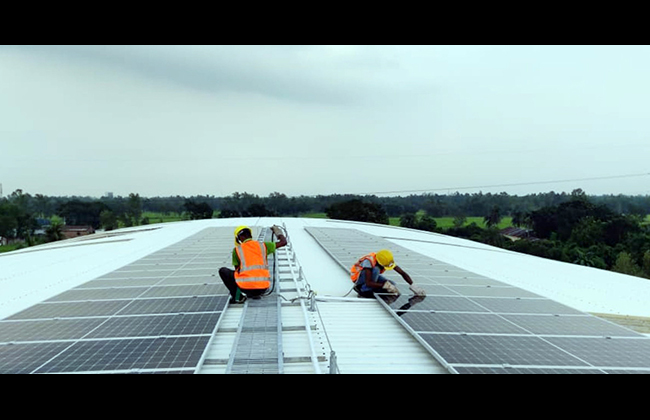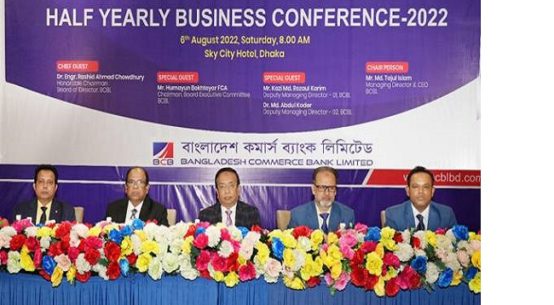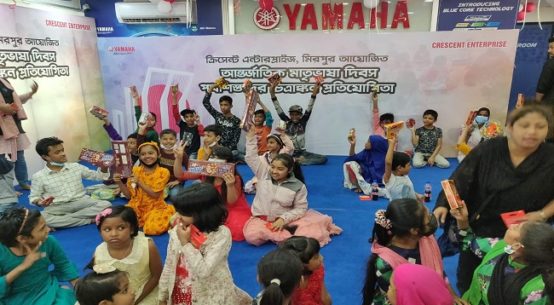
Unilever Bangladesh Limited (UBL) inaugurated its first solar panel installation for the warehouse depot at Bogura. Through this solar panel installation, UBL started its journey to convert its distribution network to renewable energy in Bangladesh.
The solar installation in the depot will produce 53,560 KWhr of electricity annually. This will also help UBL get closer to its long-term objective of cutting carbon emissions by 202 tonnes over the next 15 years. UBL started to include renewable energy by installing Solar on the roof of its largest production facility at Kalurghat, Chattogram 11 year ago, says a press release.
Bangladesh has one of the most successful off-grid renewable energy programmes globally. However, renewable energy only makes up 3% of the national energy mix. UBL has been pioneering sustainability initiatives in the country since its inception and transforming its operation to become future fit. Including solar in its distribution depot is another example of such a vision and to reach its objective UBL has partnered with SOLshare.
Zaved Akhtar, CEO and Managing Director, Ruhul Quddus, Supply Chain Director, Dilruba Ahmed Senior Manager, National Logistics of UBL team were present to inaugurate the facility. Dr. Sebastian Groh, Managing Director and Co-Founder of SOLshare was present as well.
At the inauguration event, Zaved Akhtar, CEO and Managing Director, Unilever Bangladesh, said, “When it comes to climate action, every tonne of carbon counts. That is why we have carefully measured our greenhouse gas footprint to understand where our emissions come from and target our efforts on our journey to decarbonise our business.
“Globally, we have reduced operational emissions by 64% since 2015 and this puts us on track to achieve our global interim milestone of a 70% reduction by 2025. Currently, in Bangladesh, our Kalurghat Factory (KGF) is one of the sustainable factories and in the last 10 years, KGF has saved around 1.2 million GJ (330 K MWh) of energy and reduced CO2 emission by nearly 70,000 tonnes. It is time for us to decarbonise our extended value chain. By installing this rooftop solar installation in our first distribution dept, we have moved towards an environmentally friendly distribution network and a strong step towards reaching net zero emissions by 2050.”
In addition, Sebastian Groh, Managing Director, SOLshare, stated, “On behalf of SOLshare, I would like to express my thanks for the trust, Unilever has put in us installing the first rooftop solar installation in their vast distribution network. We are keen to push this further in a joint quest toward net zero for Unilever.”
Unilever has obtained IREC (Interstate Renewable Energy Council) certification for 100% of Grid Electricity in 2021, which is Unilever’s Direct Energy Consumption from the National Grid. I-REC Standard is empowering energy purchasers by facilitating reliable energy claims with Renewable Energy Certificate (REC) schemes. Through these initiatives, Unilever Bangladesh was able to conserve more energy than 20,889 GJ (5803 MWh) in 2021 alone, which is equal to planting 150,252 trees.


